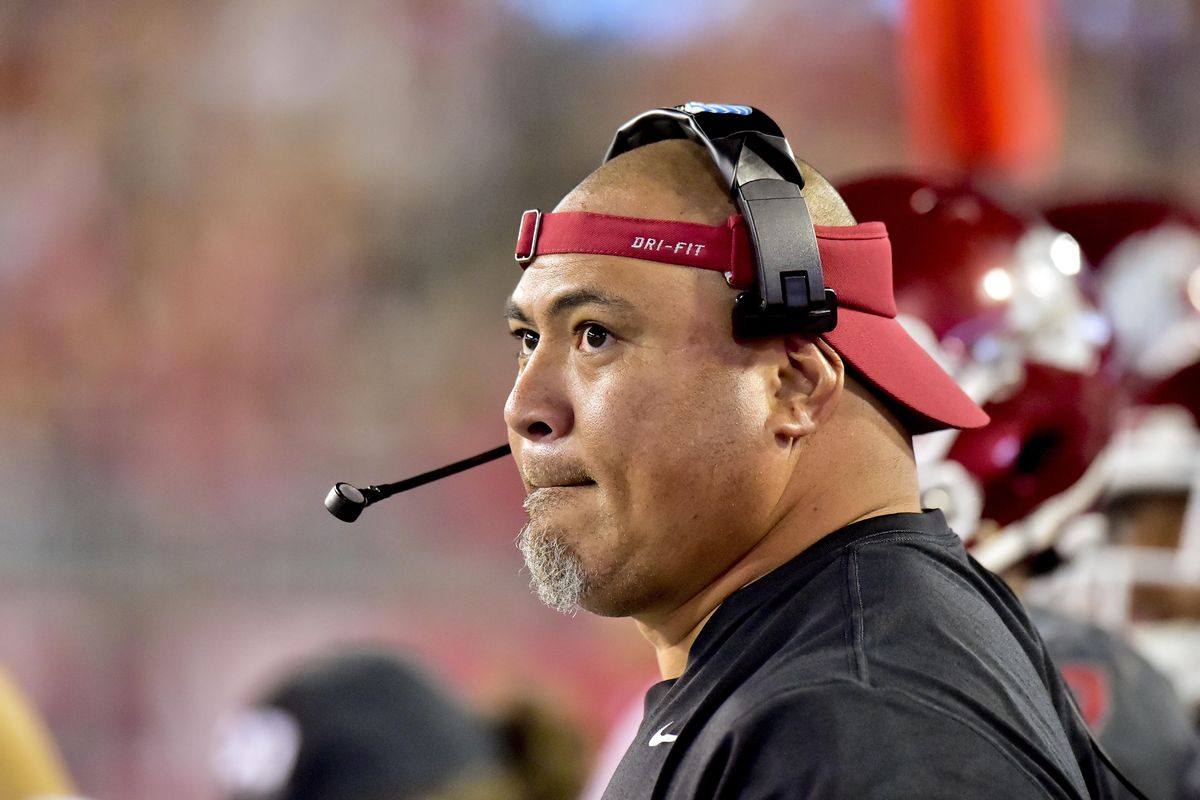Mead High lineman Nathan Puletasi playing for his future

Nathan Puletasi wears his heart on his sleeve.
Well, more specifically on his arm.
“I have a three-quarters sleeve tattooed on my arm,” the Mead defensive lineman said. “It’s something that means a great deal to me, because every line in it means something from my culture and about my heritage.”
Puletasi’s father is Samoan, born and raised on that South Pacific island group known for producing football players. His mother was born and raised in Spokane.
Like his father, Puletasi is deeply proud of his Samoan roots, which are outlined in the intricate design of the tattoo.
“I grew up following my dad’s culture and how in Samoa we respect our elders and how family is one of the biggest parts of who you are,” he explained. “My dad is an awesome role model for me. I want to be a man like him, and I definitely plan to take a lot of the ways he taught me and use them when I have my own family.”
American Samoa has a rich history of producing athletes. The islands of Samoa produce the highest number of top-level rugby players in the world as well as the highest number of NFL players per capita. A boy born to Samoan parents is 56 times more likely to get into the NFL than any other boy in America.
That’s true in Puletasi’s family.
Former NFL player Joe Salave’a, the former Washington State defensive line coach and now associate head coach at Oregon, is an uncle. His cousin, Troy Polamalu, is a legend in Pittsburgh, where he starred for the Steelers.
Another cousin, Sonny Puletasi, played at University of Wyoming and his older brother, Tyler, played at Eastern Washington while his sister, Tifa, played basketball at St. Mary’s.
Lineage is a plus, but what has Nathan Puletasi on the list of the state’s top football recruits is all him: at 6-foot-3 and 265-pounds he is an explosive force off the line of scrimmage for the Panthers. Once a football game starts, he’s driven to seek the football.
Like many of the players from his father’s home island, that on-field presence is a sharp contrast to Puletasi’s normal way of meeting the world.
“I’m really kind of a softy,” he laughed. “I’m kind of an emotional guy. But once the game starts, I’m focused and that all goes away.”
Puletasi is under a microscope this season.
While he’s playing for Mead, he’s also playing for his own future.
Scouts show up at his games, and they track a long list of attributes.
Northwest Prep Report, a website that tracks college football recruits, lists any number of them: a 4.9 second time in the 40-yard dash, a 335-pound bench press, 445-pound squat, 265-pound power clean and a 485-pound deadlift.
They talk about his ability to shed blockers and his quickness in attacking the ball carrier or the quarterback.
As one GSL coach puts it, “You can’t block him with just one person.”
“I feel blessed that I have qualities that college scouts are looking for and that they are out there watching what I do,” he said. “But I also feel that I’m sharing that spotlight with my teammates. Scouts come to watch me, but when they’re there they’re also seeing what those other guys can do.
“I’m playing for my own future, yes, but maybe I’m playing for their future, too.”
Puletasi draws inspiration from the success Hercules Mata’afa found at Washington State, where he was a consensus All-American and named Polynesian College Football Player of the Year and Pac-12 Defensive Player of the Year by the Associated Press.
“It meant a lot to me to see what he was able to do because he and I are the same size,” Puletasi said.
The recruiting process is interesting, and there is a tendency for a player to feel a piece of meat being evaluated from inside a butcher’s case.
“My whole life people have told me how big I am, how gi-normous I am,” he said, laughing. “I’ve actually had scouts tell me that I’m undersized, that I’m not the biggest at my position.”
And while they talk to him about how many pounds of muscle they can pack onto his frame in their weight room, Puletasi said he’s already learned how to handle players bigger than himself.
“I’ve gone against some pretty big offensive lines in my career,” he said. “But the biggest I’ve ever gone up against was a kid I took on at the Boise State football camp. He was 6-6 and 410 pounds. When you go up against guys that big you learn how to use your abilities to your benefit. I just strike ’em hard and show them who I am.”
Where he goes next is up in the air, although there are offers on his table and interest has been shown by more than a few schools. Puletasi said he has yet to take an official visit to a potential school, but that’s in his future.
But, he hinted, if there’s a chance to play for his uncle in Eugene, it would be welcome.
“I would love to play for a coach like him, someone who values the same things that I value,” he said.
Besides, he said, Salave’a owes the family a little something.
“The last time I saw him at our house, he broke our couch!” he laughed.